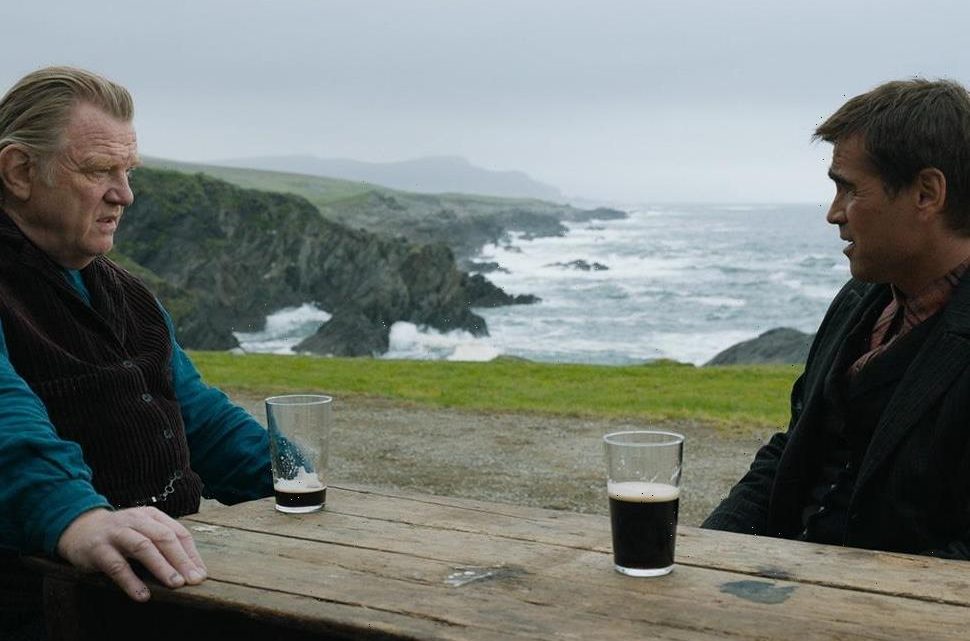
Martin McDonagh’s ‘Banshees’ Watches the Sinking of a Friendship
09/02/2022By Peter Debruge
It’s been nearly three decades since “In Bruges” writer-director Martin McDonagh decided to try his hand at writing for the theater, knocking out the first drafts of “The Lieutenant of Inishmore” — a dark comedy so violent that the actors find them slipping in all the fake blood on stage — and “The Cripple of Inishmaan,” as well as five other plays, during an unthinkably prolific nine-month span.
He wrote like a man possessed during that time, channeling the words of the raging, salty-mouthed Irish characters he heard in his head. Once produced, six of those plays propelled McDonagh to international fame — and a decade later, an Oscar-winning filmmaking career. But he buried one of those first seven scripts, “The Banshees of Inisheer,” which was intended to round out his Aran Islands trilogy (in a 2006 profile for the New Yorker, he insisted that one simply “isn’t any good”).
Now, as McDonagh arrives at the Venice Film Festival with a similar-sounding film, “The Banshees of Inisherin,” he wants to make it clear: “I wrote it entirely anew three years ago, and it’s only the title that survived from way back when,” explains McDonagh, who liked the alliteration — the repeated “sh” sound in “Banshees” and “Inisherin” (emphasis on the third syllable).
“In the back of my mind, I thought it would be great to wrap up that vague trilogy,” he says, even if the script is nothing like the one he wrote way back in 1994, during that initial blaze of inspiration. “It’s a made-up island and an absolutely new story.”
The film reunites “In Bruges” co-stars Brendan Gleeson and Colin Farrell as ex-chums Colm and Padraic, who used to be the best of friends on their sparsely inhabited Irish island, until one day Colm decides he’d rather drink alone.
“I think the very first impulse was doing a truthful sad breakup story and having it be a platonic one, where there’s none of the emotional baggage of sex or any of that,” McDonagh explains. “I’d wanted to get Brendan and Colin back together ever since ‘In Bruges.’ These parts were written for them. Brendan is a fiddle player, so that was a natural thing to lean into, and Colin is a tender guy. That’s what I love about him, his openness to frailty.”
The reason for the rift — which is slow to reveal itself as McDonagh indulges in a bit of irreverent rural portraiture, landing hardest on the village gom (Barry Keoghan) — involves Colm’s newfound interest in making music: He’d rather diddle with his fiddle than waste time with his dull friend.
“The whole idea of artistic integrity being the impulse behind it just opened things up because I could relate to it. Not wasting time is a big thing in an artist’s thought process,” says McDonagh, who decided to get all “meaning of life” about it. “We had two weeks of rehearsals, during which we worked out why Brendan’s character is being so harsh in some scenes and more forthright and tender in other scenes. I hope people see themselves in both parties, where there’s not just one villain of the piece.”
When Padraic tries to patch things up, Colm threatens to cut off his own fingers.
“I was surprised when he came to the bar (in my head) with that ultimatum,” McDonagh admits, describing once again the feeling of following these imagined characters to their natural ends. “When that happened, it threw everything up in the air in a really good way. It’s funny how you can go to something so extreme, but then it’s really interesting in the writing to follow that through with logic.”
“Banshees” is a lot less bloody than McDonagh’s other work. The violence is largely self-inflicted, although audiences would do well to brace themselves for a “befingering” — or several. It’s a quieter, more introspective film overall, in which silences often matter as much as the words.
“I never wanted to make a film that felt like it was a playwright making it, even though I’ve always leaned into interesting dialogue and strong characters,” says McDonagh, who cites early-20th-century Irish playwright John Millington Synge as an inspiration — more than the stylized ultraviolence of Danny Boyle and Quentin Tarantino, so evident in his earlier films. Of Synge, he says, “His stuff was very, very modern. ‘The Playboy of the Modern World,’ which is set on the Aran Islands, is a very dark comedy that could have been written 10 years ago.”
Early on, during that nine-month writing frenzy that begat his first half-dozen plays, the London-born McDonagh found his artistic voice — a sardonic Hiberno-English brogue — by setting his plays in Ireland.
“I think locations are always another character in our work,” McDonagh says. “In ‘Blood Simple,’ the Texas night is a character,” he says, referring to a Coen brothers favorite. “Here, we wanted to capture the beauty and the insularity of an Irish island and have that be characterful.”
Although invented, Inisherin is set within view of the mainland, during an unspecified time when the Troubles can be seen and heard on the horizon — make of that what you will. Also key are a couple of animal characters, which don’t always fare as well as their owners in McDonagh’s world (just think back to that unlucky black cat in “The Lieutenant of Inishmore”).
“I’m a vegetarian, and I love animals, especially miniature donkeys after making this film,” he says. “They’re just fun to have around and can be unpredictable.” And as friendships go, they can be far more reliable than people.
Read More About:
Source: Read Full Article

